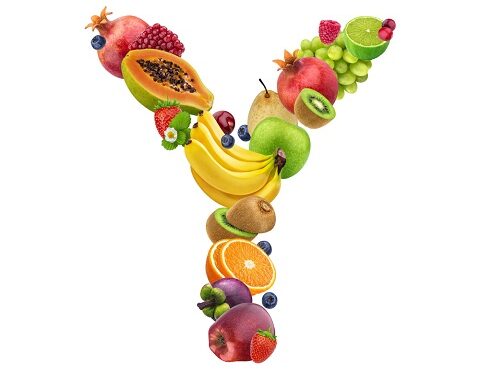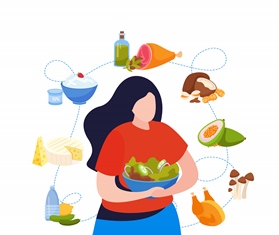Prostate health is a critical aspect of overall well-being for men, particularly as they age. Dietary choices play a significant role in maintaining prostate health and reducing the risk of prostate-related conditions such as benign prostatic hyperplasia (BPH) and prostate cancer. Here, we delve into the ten worst foods for prostate health, providing detailed insights into why these foods should be limited or avoided.
What is Prostate Health?
Prostate health refers to the proper functioning and condition of the prostate gland, a small organ located below the bladder in men. This gland is responsible for producing seminal fluid, which nourishes and transports sperm. Maintaining prostate health is crucial, particularly as men age, as it helps prevent common issues such as benign prostatic hyperplasia (BPH), prostatitis, and prostate cancer. Factors affecting prostate health include diet, physical activity, hormonal balance, and genetics. A balanced diet rich in fruits, vegetables, and lean proteins, regular exercise, and avoiding excessive intake of processed foods and alcohol can promote prostate well-being. Regular medical screenings, such as PSA tests and digital rectal exams, are essential for early detection and effective management of prostate-related conditions. Proactive measures and a healthy lifestyle are key to maintaining optimal prostate health throughout life.
How Does Diet Impact Prostate Health?
Diet plays a significant role in maintaining prostate health and can influence the risk of developing conditions such as benign prostatic hyperplasia (BPH), prostatitis, and prostate cancer. Here, we explore how various dietary choices can impact prostate health.
Antioxidant-Rich Foods
Foods high in antioxidants can protect the prostate from oxidative stress and inflammation, which are linked to cancer development. Tomatoes, rich in lycopene, are particularly beneficial. Other antioxidant-rich foods include berries, nuts, and leafy green vegetables.
Omega-3 Fatty Acids
Omega-3 fatty acids, found in fatty fish like salmon, mackerel, and sardines, have anti-inflammatory properties that can reduce the risk of prostate problems. Incorporating these healthy fats into your diet helps maintain a balanced inflammatory response.
Cruciferous Vegetables
Cruciferous vegetables such as broccoli, cauliflower, Brussels sprouts, and kale contain compounds like sulforaphane that have been shown to help protect against cancer. These vegetables can support detoxification processes and promote healthy cell function in the prostate.
Green Tea
Green tea is rich in polyphenols, particularly catechins, which have antioxidant and anti-inflammatory effects. Regular consumption of green tea can lower the risk of prostate cancer and support overall prostate health.

Hydration
Adequate hydration is essential for prostate health. Drinking plenty of water helps flush out toxins from the body and supports overall urinary and prostate function.
Ten Worst Foods for Prostate Health
1. Processed Meats
Processed meats, including sausages, hot dogs, bacon, and deli meats, are high in saturated fats and chemical preservatives like nitrates and nitrites. Studies have linked these compounds to an increased risk of prostate cancer. The excessive sodium content in processed meats can also contribute to hypertension, indirectly affecting prostate health.

2. Red Meat
Frequent consumption of red meat, such as beef, pork, and lamb, has been associated with a higher risk of developing prostate cancer. Red meat is often high in saturated fats and cholesterol, which can lead to increased inflammation and oxidative stress in the body. Cooking red meat at high temperatures (grilling or frying) can produce carcinogenic compounds called heterocyclic amines (HCAs) and polycyclic aromatic hydrocarbons (PAHs), further elevating the risk.
3. Dairy Products
High intake of dairy products, including milk, cheese, and butter, is linked to an increased risk of prostate cancer. Dairy products are rich in calcium, which, when consumed in excess, can potentially lower levels of vitamin D in the body. Vitamin D is crucial for prostate health, and its deficiency is associated with an increased risk of prostate cancer.

4. Fried Foods
Fried foods are detrimental to prostate health due to their high content of unhealthy fats and the formation of harmful compounds during the frying process. Foods like French fries, fried chicken, and doughnuts contain trans fats and advanced glycation end-products (AGEs), which promote inflammation and oxidative stress, negatively impacting the prostate.

5. Sugar-Sweetened Beverages
Sugar-sweetened beverages such as sodas, energy drinks, and sweetened fruit juices are packed with added sugars, which can lead to obesity and insulin resistance. Both conditions are risk factors for prostate problems, including BPH and prostate cancer. High sugar intake also promotes inflammation, which is detrimental to overall prostate health.

6. Alcohol
Excessive alcohol consumption is linked to an increased risk of prostate cancer. Alcohol can lead to hormonal imbalances, liver damage, and increased oxidative stress, all of which negatively impact prostate health. Limiting alcohol intake to moderate levels is advisable to reduce these risks.

7. Canned Foods
Many canned foods contain Bisphenol A (BPA), a chemical used in the lining of cans. BPA is an endocrine disruptor that can mimic estrogen and interfere with hormonal balance, potentially increasing the risk of prostate cancer. Additionally, canned foods are often high in sodium, which can contribute to hypertension and negatively affect prostate health.

8. Refined Grains
Refined grains, such as white bread, white rice, and pasta, have been stripped of their nutritional value during processing. They are high in simple carbohydrates, which can spike blood sugar levels and lead to insulin resistance and obesity. Both conditions are associated with an increased risk of prostate issues.

9. High-Sodium Foods
A diet high in sodium can contribute to hypertension, which indirectly affects prostate health by increasing the risk of cardiovascular issues. Foods such as salted snacks, canned soups, and processed foods are typically high in sodium. High sodium intake can also exacerbate symptoms of BPH, making it crucial to monitor and limit salt consumption.
10. Artificial Additives and Preservatives
Foods laden with artificial additives and preservatives, such as fast foods, packaged snacks, and ready-to-eat meals, can harm prostate health. These substances can lead to inflammation and disrupt the body’s hormonal balance, increasing the risk of prostate problems. Ingredients like monosodium glutamate (MSG) and artificial sweeteners should be particularly avoided.
FAQs Section
Certain foods are known to support and “clean” the prostate by reducing inflammation and providing essential nutrients. These include tomatoes (rich in lycopene), broccoli, green tea, nuts, berries, fatty fish (like salmon, which is high in omega-3 fatty acids), and foods high in antioxidants and fiber. These foods can help maintain prostate health and reduce the risk of prostate issues.
Eggs are not necessarily bad for an enlarged prostate when consumed in moderation. However, there is some evidence suggesting that high consumption of dietary cholesterol and choline (found in eggs) might be linked to an increased risk of developing prostate cancer. It is best to consult with a healthcare provider to determine the appropriate amount of eggs for your diet.
Cheese, particularly high-fat and processed varieties, can be detrimental to prostate health if consumed in excess. High-fat dairy products may contribute to inflammation and hormonal imbalances, which can affect the prostate. Opting for low-fat or plant-based cheese alternatives and consuming them in moderation can help mitigate these risks.
Bananas can be beneficial for an enlarged prostate due to their high content of vitamins, minerals, and fiber. They contain potassium, which helps regulate blood pressure and fluid balance, potentially reducing the strain on the prostate. Bananas also have antioxidant properties that support overall health. Including bananas as part of a balanced diet can be helpful for maintaining prostate health.
Conclusion
Maintaining prostate health requires mindful dietary choices. Avoiding the aforementioned foods can significantly reduce the risk of prostate-related conditions. Instead, focus on a balanced diet rich in fruits, vegetables, whole grains, and lean proteins. Staying hydrated and engaging in regular physical activity are also essential components of a healthy lifestyle.





